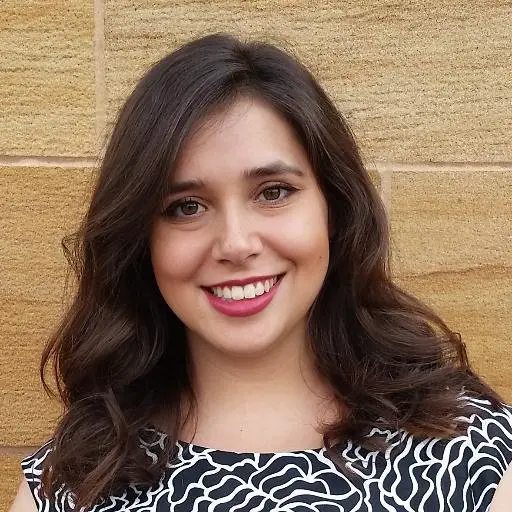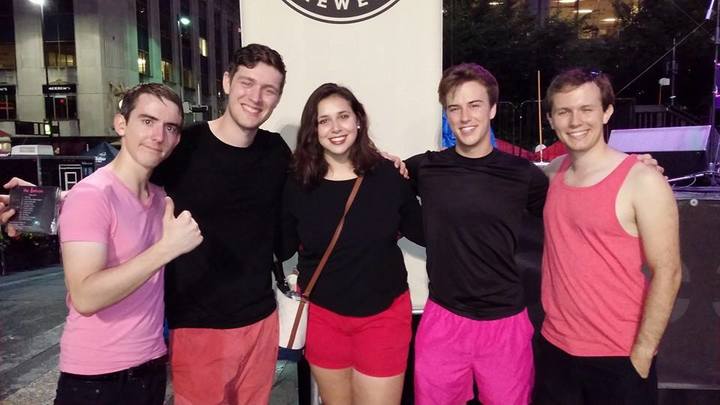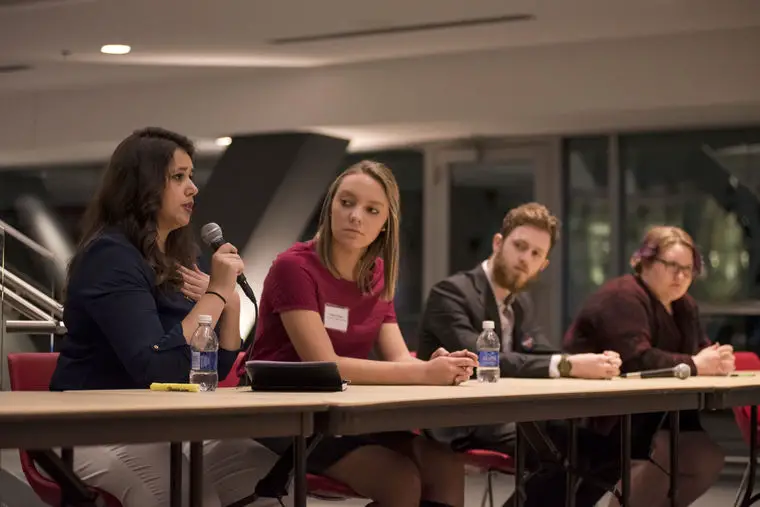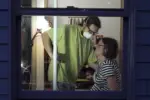The Fine Line of Student Activism
Price works with student activists, faculty and police to find protest solutions and transform her school into a sanctuary campus.
By Phillip Bugajski, Loyola University Chicago
Nicole Price, a fifth-year student at the University of Cincinnati, studies Communications, Electronic Media and Public Relations.
She is also an at-large Senator on the student government and has been working with the UC Faculty to create a protest-response team. I had the chance to interview her regarding her work with the faculty and the UC Community as a whole.
Phillip Bugajski: So, you and a few other members of student government have been working with the University of Cincinnati faculty to create a protest-response team. What is the purpose of creating the team, and how has the progression been?
Nicole Price: So, a protest response team may sound like something meant to intimidate students, almost like a SWAT Team, but it really is members of the faculty, students and the University of Cincinnati police force that meet once a week to support students.
PB: So, supporting students has been a kind of charge led around the U.S. in a lot of campuses. How do you specifically support students when they’re protesting?
NP: Supporting students means that, as we see student activism increasing, such as with various groups, like the Irate 8 and Students for Survivors, that are becoming more organized, we make sure students know what their rights are, that their speech is really protected and that faculty know how to respond to protests on and around campus. This team will give students all the support that they need or want when demonstrating or protesting.

PB: How, in your work, have you found to be the best way for faculty to respond to increased student activism?
NP: Well, for example, on the day of President Trump’s Inauguration, there had been an organized student walk-out of class, and the faculty had to decide, do we call attention to them? Do we issue an absence for the day? It became important for us, in creating this team, to try to organize the faculty, so they would have a consistent response across the board to students leaving class, and asking that students do not receive penalties for leaving class to protest.
PB: I see. There was actually a similar effort by some of the professors at my school, Loyola University Chicago. On Inauguration Day, some faculty wrote a letter to other professors asking that students who left to demonstrate not be given absences because it was important for them to express their opinions.
NP: It’s also important to have a mutually understood response with the police force, especially here with the University of Cincinnati Police Department. After the shooting of Samuel Debose in 2015 by a UC police officer, there was a general fear by the faculty and students that there could have been riot. The campus recreation center, where I was working, was closed, and students were sent home for the rest of the day when a verdict was being delivered. From this, we in the student government found that it was important to have clear information, and when the police are present on campus in the future, that they are there to protect, not to suppress demonstrators.
PB: How has the progression of the team been going? Have there been any significant policy initiatives? There are a lot of issues that students are concerned about that the faculty might not realize.
NP: There definitely has been an increase in demonstrations for a variety of different causes, which we have had to discuss with faculty members. We recognized the real possibility of adversarial groups attending protests, which could have led to protests becoming violent or destructive. At the same time, there are students demonstrating their right to open carry and attending other protests, which we had to inform the student body about. All of these issues, again, are related to informing the students about other issues going on and about the police presence on campus during protests.
PB: How do you feel as a student senator working with the faculty? Do you think that your role is defined by your work with the faculty on behalf of the students?
NP: Definitely. In student government, we talk a good amount about our constituents, which is made up of all the students at UC, not just those who voted for you. It is crucial above everything else to make sure that you adequately represent the students and their concerns to the faculty.
PB: So, in a sense, you’re kind of the liaison between the administration of the university and the students?
NP: Communication is often lost between the student body and the faculty. A lot of students aren’t sure what the right course of action is, or if we should consider issues at all. Therefore, it’s our job as student-elected representatives, no matter how we feel about an issue, to bring any issues to the attention of the faculty and give students the opportunity to have their voices heard. We as student leaders do not speak over student activists, but rather bring them to the table and help coordinate with them.
PB: So, you’ve been working with the community to discuss the police presence. You set a consistent policy about the presence during student protests, right?
NP: Yes, we came to the agreement that when organized events are open to the public, police units will be there. Because UC has a student body size of about 44,000, even if only a fraction of those people attend a rally, it becomes important for police to be available and to keep people safe, because so much can happen with so many emotionally and politically charged people in a small area.
PB: Definitely, especially in the current day, where student activism has been increasing so much. And today, a lot of the issues revolve around social issues, such as sexual abuse, immigration, racism and a number of other causes. Is it similar at University of Cincinnati?
NP: Yes, a lot of our student demonstrations have been based around social justice causes, such as Students for Survivors, the Irate-8 and the push to make UC a sanctuary campus for immigrant students. Because so many of our students are involved, we have seen the role of student government grow to represent the student body.

PB: It’s important to understand your role as a student senator, and as you said, remove yourself from the situation, but how do you feel about the increase in student activism on UC’s Campus and in general?
NP: I love it. I think it’s incredible. I’m amazed at the students who do this, because they put themselves on the line for what they care for. Now is the time to credit them for the amazing work that these students do. Historically, student activism wasn’t seen to have much of an impact, but now people are starting to see how important it is for people to be involved in the things that they really care about. They just want to make things better for themselves and the people around them. I’m all for that. It’s important that all voices are listened to, no matter how loud or quiet. You look at these students, and they are expressing to the fullest their First Amendment rights.
PB: And, speaking of being active in addition to being a representative, you’re working on a new bill for the university. Can you tell me about that?
NP: Sure, I am currently working on a Sanctuary Campus Bill, which would give UC the title of a sanctuary campus, but even more important than the title is the policies in place to accompany the title.
PB: Can you tell me more about those policies? What have you been working to include in UC’s practices toward immigrant students?
NP: We’re working toward making sure that students not only feel protected, but that the school’s procedures encompass a “sanctuary campus” philosophy. We are in the process of amending University of Cincinnati’s Student Bill of Rights, which had not been changed since 1989. Our changes would make sure that personal information of students, such as a student being undocumented, would not be released to immigration officials without a warrant, and students would be notified by mass email if such investigations were being held. Essentially, we’re trying to protect the student’s rights to privacy, so their educators don’t become their deporters. It’s important that these reforms are included, and that students know about their rights at a time when the issues are so close to our friends and community.
PB: You’ve certainly been doing a lot during your college career to make sure that students are able to know their rights, in and out of the classroom. Do you think that what you’re doing can directly impact people off campus?
NP: I went into Communications and Public Relations to study how to help people to achieve their goals through honesty, authenticity and transparency. As I’ve been working with student government and being a liaison between student activists and faculty, I’ve learned that keeping people informed is important. If I can be the person that someone can talk to about the issues, try to change policy or if I can inspire someone to become that person, I will have helped to make the system we live in a little better. I hope that in the future, I can move further into the political sphere and make meaningful change not just for students, but for a larger body of constituents, the American people .
















